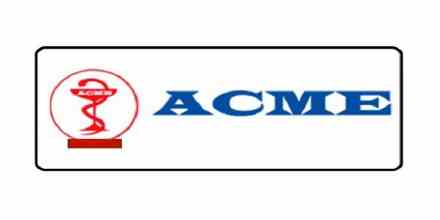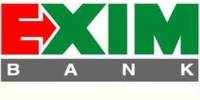Corporate Governance Strategy of Acme Laboratories Limited
ACME Laboratories Limited is leading Pharmaceuticals Company in Bangladesh established in the year 1954. The company has a very big manufacturing plant located at Dhamrai, 40 kilometer away from the central of Dhaka city. The company produces various types of dosages’ forms which include tablets, capsules, oral liquids, ampoules, dry powder vials, powder for suspension, nasal Drops, eye drops, infusion, injection etc. Since its inception, ACME has been lunching and innovate products in order to fulfill unmet demand of the medical community. The focus has to bring more new technologically advanced molecules to this country.
The company specialized in value added high technology dosages form like sustained release tablets, quick mouth dissolving tablets, barrier coated delayed release tablets etc. It has established a modern research and development laboratory for the development of new advanced forms of various drugs and devices like poorly soluble drugs, dry powder inhalers, coated pellets, modified release products, taste masked preparation etc.
ACME quickly developed a very competent sales team, which promotes the specialties throughout the country. The company virtually covers every single corner of the rural as well as urban area of Bangladesh. It has own large distribution network having 19 depots all over the country.
ACME has a clear vision to become a leading research based form manufacturing with global presence within a short period of time.
The company operates in a single industry segment, it has its own manufacturing facilities, the principal activities of the company are formulation, manufacturing and sales drugs in home and aboard, the overseas offices and associates of ACME are Srilanka, Myanmar and the exports outlets are Bhutan, Hong Kong, Iraq, Kenya, Nepal, Pakistan, Singapore, Taiwan, Thailand, Vietnam, Philippines, East Timor, Belize, Ethiopia Etc.
History of ACME Laboratories Limited
The ACME Laboratories Ltd. is a local and export oriented Pharmaceuticals Company situated at Dhaka, incorporated as a proprietorship firm in 1954. The founder of the ACME organization was late Hamidur Rahman Sinha.
The firm was converted into a private Limited company in the year 1976. Commercial operation at the modernized plant equipped with sophisticated and advanced facilities began toward the end of 1983. Many challenges were overcome successfully to transform the company from a small unit to what it is today.
The ACME Laboratories Ltd. is the third largest manufacturer and exporter of Human, Herbal, and Animal Health pharmaceutical products in Bangladesh. It’s a global exporter of Human, Herbal and Veterinary pharmaceutical products. The ACME Laboratories Ltd. has expanded their business all over the country.
The ACME Laboratories Ltd.’s local network comprises more than 20 sale centre. The success of The ACME Laboratories Ltd. in the domestic market promoted it to explore the international market as well. Since then it has been expanding worldwide. The volume of sales increased substantially with an average growth rate of 50% almost every year. They exported their products almost 15 countries.
The ACME Laboratories Ltd. continuously seeks to expand its production facilities, add employees and increase its sales and marketing efforts. According to the latest statistics, out of about 300 Pharmaceutical companies in the country, The ACME Laboratories Ltd. is one of the top four.
Achievement of ACME laboratories Ltd
ACME is one of the leading pharmaceuticals company in Bangladesh. It is one of the top most pharmaceuticals companies that have large contribution in the society and controls. The drug market of ACME is possessing huge market shares in Bangladesh ACME laboratories.
1954-ACME laboratories established as a proprietorship for manufacturing pharmaceutical items.
1976- ACME laboratories converted into a privet limited company.
1983-Commercial operations with modern facility at Dhamrai, 6 acres land 32 km from Dhaka.
1987-c Cream and ointment added in production.
1990-Achieve average 25% growth rate compared to the 13% registered by pharmaceutical sectors.
1992-Introduce inject able products.
1997-Agrovet Division of manufacturing of veterinary and animal health care drug was introduced as an independent factory.
June 20, 2005-The ACME Agro-vet & Beverage Ltd has launched their new product ‘ Acme Premium Drinking Water’. Chairman of ACME group Mr. Nasir-Ur-Rahman Shina officially inaugurated the product in the capital city on 20th June. A traditional hackney carriage was also.
Vision statement
A vision statement is the statement or the outline that a company wants to achieve trough the business. Vision statement sates the purpose and the values of the company. ACME laboratories have its individual vision that they want to achieve.
The vision of ACME is to ensure “Health, Vigor and Happiness for all and is on a Perpetual quest for excellence.”
Mission statement
Our holistic approach is to ensure Health, Vigour and Happiness for all by manufacturing ethical medicines of the highest quality at affordable prices and expanding in the local and global market. We view ourselves as partners with the doctors, healthcare professional, all other customers, our employees and harmonize with environmental issue.
Goal of the company
The main objective of the company is to achieve the maximum market share along the whole country within very short time by utilizing good reputations and providing better quality products.
Company core values
The following values are the foundation of ACME’s culture, guiding us in our daily work in how we do business & how we relate to people.
Customer Focus:
We always focus on our Customers. We listen to and connect with our customers. We anticipate their needs and make it easy for them to do business with us. We keep promises. We offer them value and quality services to enrich lives and enhance business success. We treat customers with dignity and respect.
Team spirit:
We believe in teamwork. We know that by working together as a team with common goals we can achieve greatness. We recognize, respect and value diversity in a team so that we can develop & maintain a culture of sharing, accepting and rewarding better ideas. Teamwork is the secret of ACME’s success.
Desire to win:
We know how to make things happen and we know how to win in the battlefield called the market place. We believe “Everything is possible.” That gives us an edge over our rivals.
Pro-activity:
We anticipate future changes in the industry and we take proactive moves to seize the future opportunities and take measures to resolve possible problems. We adapt quickly with the changes.
Integrity:
Our stakeholders’ confidence on us drives us to become more responsible about our commitments. We value all our stakeholders, customers, employees, the community we live in and the society at large. We strive to deliver our best so that we can be preeminent in the industry. We take responsibilities for all our actions.
Personal Excellence:
We achieve leadership and superior performance through the pursuit of personal excellence. We are committed to doing and being the best. We seek continuous improvement and take pride in what we do. We do things to the highest possible standards. We acknowledge potential of the individual and create opportunities for all to grow and excel. Together, we celebrate our success and achievements.
Aspirations of ACME
- ACME wants to discover, develop and successfully market innovative products to cure diseases, to ease suffering and to enhance the quality of life.
- It wants to be recognized for having a positive impact on people’s lives with our products, meeting needs and even surpassing external expectations.
- It strives to create sustainable earning growth. Ranking in the top quartile of the industry and securing long-term business success.
- It wants to build a reputation for an exacting workplace in which people can realize their professional ambitions.
- ACME strives for a motivating environment where the creativity and effectiveness are encouraged and where cutting-edge technologies are applied.
Company quality objectives
- Increase Market Share
- Increase Productivity
- Increase Profitability
- Continual Improvement
Quality policy
The following guidelines/ principles help to make ACME’s quality policy a reality
- Absolute commitment to the highest obtainable standard of quality products and services through excellence and concerted efforts of both employer and employee.
- The ACME Laboratories Limited. Shall improve its market share and productivity to enhance profitability of the organization through monitoring its performance on a regular basis and identify opportunity for continual improvement in all the areas.
- The organization has adopted ISO-9001 and WHO cGMP standards. All employees must adhere to the documented procedures and SOPs.
- The Quality Management System shall be adequately resourced with competent personnel, suitable premises, up-to-date technology and requisite facilities.
Company products
ACME is running its operation in the market with 824 generic products or medicine of three broad category Human is 561, Veterinary is 228 and Herbal is 35 product respectively. ACME Laboratories is constantly expanding and improving its product line. The following items are our most recent additions.
Sales and distribution channel around the country:
ACME has 20 Sales and distribution center around the country. They are given bellow: Rangpur, Bogra, Rajshahi, Jessore, Khulna, Barisal, Mymenshingh, Dhaka City – South, Dhaka City – North, Sylhet, Comilla, Chittagong, Chowmohani, Chakoria, Faridpur, Saver, Narayangonj, Dinajpur, Central Sales Center (CSC) and B.Baria Sales Center.
Customers:
The business of the acme laboratories ltd Is not retailer oriented . As a pharmaceuticals company; the acme laboratories ltd has to deal with Physicians, rural medical practitioner, and sometimes retailer like chemists. Some institutes and hospitals are also the customers of The ACME laboratories Ltd. The doctors are taken as the prime customers here, because majority of demand for pharmaceuticals products is dependent on the doctor’s prescription.
Competitors:
Nationally
- Square
- Baximco
- Incepta
- Renata
- International Drug
Internationally
The ACME Laboratories Ltd. Has lots of international competitors. Many counties where ACME exports have their own local companies producing medicines and many of them are exporting their medicines to other countries and Bangladesh as well. So, all over the world there are many pharmaceutical companies involved the international market. In the international market the ACME Laboratories Ltd. is a small company export little quantity of medicines in some country in the world. ACME’s main target region is South-East Asia.
Export
The Success of The ACME laboratories Ltd. in the domestic market prompted it to explore the international market as well. In 1995, it started its first journey to international operation by exporting medicines to Bhutan. Since then it has been expanding worldwide. The volume of sales increased substantially with an average growth rate of 50% almost every year. The ACME Laboratory Ltd. is exporting medicines to several countries in neighboring South-East Asia, Africa, Middle East and the EU. Sales wise Afghanistan is the top among the 11 Countries. The ACME Laboratories Ltd. is exporting at a growth rate of 55%.
Regular Export Markets are Myanmar, Nepal, Sri Lanka, Pakistan, Afghanistan, Philippines, Hong Kong and Vietnam. Irregular Export Markets are East Timor, Gambia, Uzbekistan, Bhutan, Yemen, Malta and Cambodia. Developing Markets are Ethiopia, Taiwan, Myanmar, Yemen, Cambodia, Kenya, Nigeria (Vet).
People of ACME
Just as strong roots provide the foundation for a growing tree, a company’s growth is supported by the strength of its employees.
ACME people build its success. For ACME, success means that each and every employee contributes to expanding its pool of experience, each and every day. To achieve its purpose and mission, ACME affirms its value for integrity, respect for people, innovation, performance and leadership.
More than 5350 individuals from diverse disciplines including pharmacy, microbiology, MBA, accounting, engineering and medicine are working under the umbrella of ACME.
Division and department of the ACME:
ACME has highly qualified professional staffs for handling all the condition of the company. Introduction of various divisions are as follows:
- Human Resource & Administration Division (HR&A)
- Procurement Planning & Inventory Control Division (PPIC)
- Finance and Accounts Division (F&A)
- Marketing Division- Human & Herbal
- Marketing Division- Veterinary
- Distribution Department
- Product Management Department (PMD)
- Medical Services & MIS Department (MSD)
- Quality Control Department (QC)
- Manufacturing Division
ACME plans or work departments
ACME Factory or works departments are divided various functional and service departments. They are given as bellow:
Functional Department includes:
Manufacturing/ production division mainly divided into two departments, Production- Human & Herbal and Production- Veterinary which includes various sections such as tablet, capsule, liquid, injection (ampoule), injection (vial), cream and ointment, infusion, eye drops, Inhaler, Suppository etc.
Service Departments are included:
- Quality Assurance department which includes quality control, microbiology, quality assurance and in process control section.
- Research and Development department.
- Engineering department.
- Production planning and Inventory Control department.
- Accounts and finance departments
- Human resources department
Corporate Governance
Corporate governance means the system or the way by which a corporation can be directed or control. Corporate governance assures the rights and the regulations that an organization should follow. So Corporate governance
Corporate governance reflects the rules, process or procedure by which an organization should be directed and controlled. It is essentially involves balancing the interests of the many stakeholders in a company – these include its shareholders, management, customers, suppliers, financiers, government and the community. Since corporate governance also provides the framework for attaining a company’s objectives, it encompasses practically every sphere of management; from action plans and internal controls to performance measurement and corporate disclosure etc. every organization should make some rules and regulations to make their company more reliable towards the customers, employers and the suppliers. There are different definitions of corporate governance. Refers to the system by which corporations are directed and controlled. The governance structure specifies the distribution of rights and responsibilities among different participants in the corporation (such as the board of directors, managers, shareholders, creditors, auditors, regulators, and other stakeholders) and specifies the rules and procedures for making decisions in corporate affairs.
Governance provides the structure through which corporations set and pursue their objectives, while reflecting the context of the social, regulatory and market environment. Governance is a mechanism for monitoring the actions, policies and decisions of corporations. Governance involves the alignment of interests among the stakeholders.
Corporate governance has also been defined as “a system of law and sound approaches by which corporations are directed and controlled focusing on the internal and external corporate structures with the intention of monitoring the actions of management and directors and thereby mitigating agency risks which may stem from the misdeeds of corporate officers.”
In the corporate business there are two types of groups in a company. One is those people who are related with the company but considers as outsiders of the company. So there are two types of stakeholders in an organization. That are-
- External stakeholders
- Internal stakeholders
External stakeholders:
External stakeholders are those people who are not directly related to the company but they have affect on the organizations or those people who are not internally related to the company. These external stakeholders play an important role in the progress of the company.
In contemporary business corporations, the main external stakeholder groups are shareholders, debt holders, trade creditors, suppliers, customers and communities affected by the corporation’s activities.
Internal stakeholders:
Internal stakeholder is those people who have direct impact on the business. These people work for the progress of the organizations. Internal stakeholders are the board of directors, executives, and other employees.
Much of the contemporary interest in corporate governance is concerned with mitigation of the conflicts of interests between stakeholders. Ways of mitigating or preventing these conflicts of interests include the processes, customs, policies, laws, and institutions which have an impact on the way a company is controlled. An important theme of governance is the nature and extent of corporate accountability.
There has been renewed interest in the corporate governance practices of modern corporations, particularly in relation to accountability, since the high-profile collapses of a number of large corporations during 2001-2002, most of which involved accounting fraud. Corporate scandals of various forms have maintained public and political interest in the regulation of corporate governance.
Principle of the corporate governance
Corporate governance has some principles to follow so that with the help of the principles the organization can make their best uses of the external stakeholder and internal stakeholders. The principle of the corporate governance is given below-
Rights and equitable treatment of shareholders:
Organizations should respect the rights of shareholders and help shareholders to exercise those rights. They can help shareholders exercise their rights by openly and effectively communicating information and by encouraging shareholders to participate in general meetings. Share holders are the people who invest in the company and have equity in the organization.
Interests of other stakeholders:
An organization has to deal with a lot of peoples among them some are directly related to the organization but there are also some other people among whom they have responsibilities.
Organizations should recognize that they have legal, contractual, social, and market driven obligations to non-shareholder stakeholders, including employees, investors, creditors, suppliers, local communities, customers, and policy makers.
Role and responsibilities of the board
The board of directors and other responsible person like the executives of the company and manager also plays an important role in the success of the organization. They are responsible for various acts that affect the company’s image. They have to act smart in managing the overall work of the company. The board needs sufficient relevant skills and understanding to review and challenge management performance. It also needs adequate size and appropriate levels of independence and commitment.
Integrity and ethical behavior:
Integrity should be a fundamental requirement in choosing corporate officers and e-board members. Organizations should develop a code of conduct for their directors and executives that promotes ethical and responsible decision making.
Disclosure and transparency:
Organizations should clarify and make publicly known the roles and responsibilities of board and management to provide stakeholders with a level of accountability. They should also implement procedures to independently verify and safeguard the integrity of the company’s financial reporting. Disclosure of material matters concerning the organization should be timely and balanced to ensure that all investors have access to clear, factual information.
In corporate governance it ensures the rights of the external and internal stakeholders. The Corporate governance encompasses the policies, initiatives and practices a corporation uses to accomplish its business goals and develop its infrastructure. Corporate governance essentially involves balancing the interests of the many stakeholders in a company. These include its shareholders, management, customers, suppliers, financiers, government and the community.
The functions of corporate governance begin with a corporation’s shareholders and are passed to the elected board of directors, who are then in charge of developing governance strategies for the company as a whole.
Goals and Risk Management
A corporation’s board of directors sets policies and procedures to effectively meet the business’ short- and long-term investment goals while working to manage risk. Each investment decision is made with the goal of securing long-term company growth and profitable returns. The board of directors manages the risk involved with each new investment opportunity through careful examination of the opportunity’s value while determining what problems are the most likely to occur. This allows the company to plan ahead for potential trouble spots and develop strategies to avoid them.
Corporate Accountability
Another function of corporate governance is to ensure accountability within the board of directors as well as the company’s larger management structure. This provides a system of checks and balances to make certain company procedures and initiatives are being carried out properly. The board of directors can stay well informed as to the progress of investments and business projects because of this greater level of accountability and communication among the company’s management structure. This allows for greater mobility in adjusting goals or project methods should an investment opportunity or business venture produce smaller returns than expected.
Shareholder Meetings
Effective corporate governance requires shareholders to remain well informed of the company’s financial health and the status of its ongoing business initiatives. To keep shareholders informed, a corporation’s board of directors schedules regular meetings where the board shares the company’s level of profitability, its strategies for achieving goals and any problems it foresees in the market that may cause them to fall short of meeting those goals.
Shareholders who are kept well-informed of company practices are more likely to trust the board of directors and remain as corporate investors as opposed to selling company stock.
Government Regulations
An integral component of corporate governance is to ensure transparency in relation to government corporate regulations. These rules involve a wide variety of required procedures, including regular financial reporting, ethical treatment of workers, safe environmental practices and handling of hazardous materials.
Stakeholder’s interest:
In the organizations there are different parties in the organization through whom the organization has some responsibilities. All parties to corporate governance have an interest, whether direct or indirect, in the financial performance of the corporation. Directors, workers and management receive salaries, benefits and reputation, while investors expect to receive financial returns. For lenders, it is specified interest payments, while returns to equity investors arise from dividend distributions or capital gains on their stock. Customers are concerned with the certainty of the provision of goods and services of an appropriate quality; suppliers are concerned with compensation for their goods or services, and possible continued trading relationships. These parties provide value to the corporation in the form of financial, physical, human and other forms of capital. Many parties may also be concerned with
If the organizations fail to impress any of the parties of the stakeholders then it could hamper the reputation of the organization and they can lose their customers, suppliers or other external sources. It can create dissatisfaction to the firms internal people like the employers, manager’s etc. corporate social performance.
A key factor in a party’s decision to participate in or engage with a corporation is their confidence that the corporation will deliver the party’s expected outcomes. When categories of parties (stakeholders) do not have sufficient confidence that a corporation is being controlled and directed in a manner consistent with their desired outcomes, they are less likely to engage with the corporation. When this becomes an endemic system feature, the loss of confidence and participation in markets may affect many other stakeholders, and increases the likelihood of political action. There is substantial interest in how external systems and institutions, including markets, influence corporate governance.
Internal corporate governance controls
Internal corporate governance controls monitor activities and then take corrective action to accomplish organizational goals. The functions of the internal governance is given below-
Monitoring by the board of directors
The board of directors, with its legal authority to hire fire and compensate top management, safeguards invested capital. Regular board meetings allow potential problems to be identified, discussed and avoided. Whilst non-executive directors are thought to be more independent, they may not always result in more effective corporate governance and may not increase performance. Different board structures are optimal for different firms. Moreover, the ability of the board to monitor the firm’s executives is a function of its access to information.
Executive directors possess superior knowledge of the decision-making process and therefore evaluate top management on the basis of the quality of its decisions that lead to financial performance outcomes. It could be argued, therefore, that executive directors look beyond the financial criteria.
Internal control procedures and internal auditors
Internal control procedures are policies implemented by an entity’s board of directors, audit committee, management, and other personnel to provide reasonable assurance of the entity achieving its objectives related to reliable financial reporting, operating efficiency, and compliance with laws and regulations. Internal auditors are personnel within an organization who test the design and implementation of the entity’s internal control procedures and the reliability of its financial reporting
Balance of power
The simplest balance of power is very common which require that the President be a different person from the Treasurer. This application of separation of power is further developed in companies where separate divisions check and balance each other’s actions.
One group may propose company-wide administrative changes, another group review and can veto the changes, and a third group check that the interests of people (customers, shareholders, employees) outside the three groups are being met.
Remuneration
Performance-based remuneration is designed to relate some proportion of salary to individual performance. It may be in the form of cash or non-cash payments such as shares and share options, superannuation or other benefits. Such incentive schemes, however, are reactive in the sense that they provide no mechanism for preventing mistakes or opportunistic behavior, and can elicit myopic behavior.
Monitoring by large shareholders or creditors
Given their large investment in the firm, these stakeholders have the incentives, combined with the right degree of control and power, to monitor the management.
External corporate governance controls
From the former definition we have known that corporate governance work with both internal and external parties of the corporation. External governance players include auditors, block holders, and analysts who can help motivate companies to act in shareholders’ best interests.
So external stakeholders plays an important role in ensuring proper corporate governance process in a business organization which makes them more successful in their business. Some of the key components that controls external corporate governance are given below-
- competition
- debt covenants
- demand for and assessment of performance information (especially government regulations financial statements)
- managerial labor market
- media pressure
- takeovers
Corporate governance of ACME laboratories ltd
Introduction:
Corporate Governance is based on several critical principles. They include an independent, active and engaged Board of Directors which has the skill to properly evaluate and oversee the business process, business and financial performance, internal control and compliance structure and direct management on strategic and policy issues. On the other hand, the Board has to ensure that the management headed by Chief Executive Officer (CEO) fully discharge their day to day administrative responsibilities prescribed by BB and the Board itself and necessarily refrain themselves from micro management of the management affairs.
Corporate governance is the rule and practices by which a board of directors ensures accountability, fairness and transparency in a company’s relationship with all its stakeholders like financiers, customers, management, employees, government and the community where they live. The corporate governance framework consists of
- explicit and implicit contracts between the company and the stakeholders for distribution of responsibilities, rights, and rewards,
- procedures for reconciling the sometimes conflicting interests of stakeholders in accordance with their duties, privileges, and roles, and
- Procedures for proper supervision, control, and information-flows to serve as a system of checks-and-balances.
ACME laboratories ltd recognizes the importance of good corporate governance as a major factor in enhancing the efficiency of the organization. The company therefore seeks to encourage the conduct of its business to be in line with the principles of good corporate governance, which form a basis for sustainable growth. So it is very important for the company to follow the rules and regulations of the corporate governance and ensure the right of all the people related to the company. Though ACME is not related with the share market and is not enlisted in the security & exchange commission but they tend to follow the rules of corporate governance.
ACME laboratories Limited Corporate Governance
In absence of any specific, integrated and mandatory Corporate Governance instructions, various rules and guidelines by different regulatory bodies constitute an informal structure of Corporate Governance. ACME laboratories understands that all these rules and guidelines aim at establishing and maintaining a delicate balance of authority and responsibility conferred on the Board, the collective representatives of shareholders, and the management to safeguard the interest of key stakeholders, depositors and shareholders. Two very important pillars of a good corporate governance structure are “Transparency” and “Accountability” backed by strong Internal Control and Compliance Structure and MIS capabilities.
Objectives Corporate Governance
Corporate Governance may be defined as a set of systems, processes and principles which ensure that a company is governed in the best interest of all stakeholders. It is the system by which companies are directed and controlled. It is about promoting corporate fairness, transparency and accountability. In other words it can say that a “good corporate governance” is simply requires a “good business” For excellence in Corporate Governance, the most important processes one has to concentrate on are:
- Strategy Process, which provides: – A link between Strategy & Operations, – Sets up a mechanism for Strategy Review
- People Process, which provides: – A link between People & Operations
- Operations Process, which provides: – A link between Strategy & People The link between Core Objectives of Corporate Governance and the important processes is the structure of the corporate & the systems through which the activities are organized and executed.
Corporate governance is all about commitment to values, about ethical business conduct and about making a distinction between personal and corporate funds in the management of a company. Ethical dilemmas arise from conflicting interests of the parties involved. In this regard, managers make decisions based on a set of principles influenced by the values, context and culture of the organization. Ethical leadership is good for business as the organization is seen to conduct its business in line with the expectations of all stakeholders.
The fundamental objective of corporate governance is to enhance shareholders’ value and protect the interests of other stakeholders by improving the corporate performance and accountability.
Hence it harmonizes the need for a company to strike a balance at all times between the need to enhance shareholders’ wealth whilst not in any way being detrimental to the interests of the other stakeholders in the company. Further, its objective is to generate an environment of trust and confidence amongst those having competing and conflicting interests.
The aim of “Good Corporate Governance” is to ensure commitment of the board in managing the company in a transparent manner for maximizing long-term value of the company for its shareholders and all other partners. It integrates all the participants involved in a process, which is economic, and at the same time social.
Analysis of corporate governance of ACME laboratories ltd
The only guideline of the corporate governance is issued by the Securities and Exchange Commission which is followed by the all of the company in Bangladesh though it is not mandatory yet. Though ACME laboratories are not enlisted yet to the Dhaka stock exchange but recently they have started to work for being enlisted in the stock exchange. Security and exchange commission (SEC) issued vide letter no SEC/CFD/246/2006-2378 dated January 26, 2006 is currently being followed by all the company. In exercise of the power conferred by section 2CC of the Securities and Exchange Ordinance, 1969 (XVII of 1969), the Commission hereby supersedes its earlier Notification No. SEC/CMRRCD/2006-158/Admin/02-08 dated 20th February, 2006 and imposes the following further conditions to the consent already accorded by it, or deemed to have been accorded by it or to be accorded by it in future, to the issue of capital by the companies listed with any stock exchange in Bangladesh.
Corporate governance checklist
The conditions of the security and exchange commission are imposed by the order no. SEC/CMRRCD/2006-158/Admin/02-08 dated 20 February, 2006 issued under section 2CC of the Securities and Exchange Ordinance, 1969.
Maintenance of proper books of account
ACME laboratories limited maintain proper book of account. Their account system totally operated by systematically and software base. Only data input to the system then automatically it’s entered into GL account, trial balance and then to balance sheet. So we can say that Proper books of account of the issuer ACME laboratories limited have been maintained. ACME has its own intranet developed by the Oracle. So whenever a transaction happens and data is entered then it automatically included in the balance sheet. Whenever there is transactions happen then data is saved by making a voucher and then the other entire sheet saved the data.
Adoption of appropriate accounting policies and estimates consistently Significant Accounting Policies
Basis of preparation of the Financial Statements the financial statement of the ACME laboratories are made on the basis of Bangladesh Bank Circulars, Bangladesh Accounting Standards (BASs), the Companies Act 1994, the Securities and Exchange Act 1993, Securities and Exchange Rules 1987 and other rules and regulations applicable in Bangladesh on a going concern basis.
Consolidation
Statement of affairs and Income and expenditure statements of all branches and Head office are consolidated together to prepare Financial Statements of the of the every years financial statement.
Investments
Investments are stated as per following bases:
Items Basis
- Government treasury bills Face Value (Marking to Market)
- ICB’s debenture Face value
- Prize bond Cost price
- Shares Lower of cost or market value
ACME laboratories ltd doesn’t felt good to go to the market and invest in other securities but as they are trying to enter to the share market I hope that they also will consider investing in other securities.
Loans and Advances
Loans and Advances are stated at gross amount. General provisions on unclassified Loans and Advances, & contingent assets, Specific provisions for classified loans and interest suspense account thereon are shown under other liabilities.
Soundness of Internal Control System
Internal control system one of Roles and Responsibilities of Audit Committee
- Evaluate whether management is setting the appropriate compliance culture by communicating the importance of internal control and management of risk and ensuring that all employees have understanding of their role and responsibilities.
- Review the arrangements made by the management for building a suitable Management Information System including computerization system and its applications.
- Consider whether internal control strategies recommended by internal and external auditors have been implemented by the management.
- Review the existing risk management procedures for ensuring an effective internal check and control system.
- Review the corrective measures taken by the management as regards the reports relating to fraud forgery, deficiency in internal control or other similar issues detected by internal and external auditors and inspectors of the regulatory and inform the board on a regular basis.
Ability to continue as a going concern
There are no significant doubts upon ACME laboratories limited about the ability to continue as a going concern.
Audit Committee
ACME Laboratories limited have an Audit Committee as a sub-committee of the Board of Directors. The Audit Committee assist the Board of Directors in ensuring that the financial statements reflect true and fair view of the state of affairs of the company and in ensuring a good monitoring system within the business.
The Audit Committee responsible to the Board of Directors. The duties of the Audit Committee clearly set forth in writing.
External and statutory auditors
ACME laboratories limited has its own internal audit committee but it hasn’t appointed any external auditors or firms to state the financial statement of the company.
Subsidiary company
ACME laboratories ltd is mainly a pharmaceuticals company but recently it has started some of the other associated or subsidiary business. The other that ACME is operatin are given below-
- ACME agro-vet & beverage
- ACME IT
- Sinha Fabrics & wool wears
- Sinha printers
- Mars aviation
















